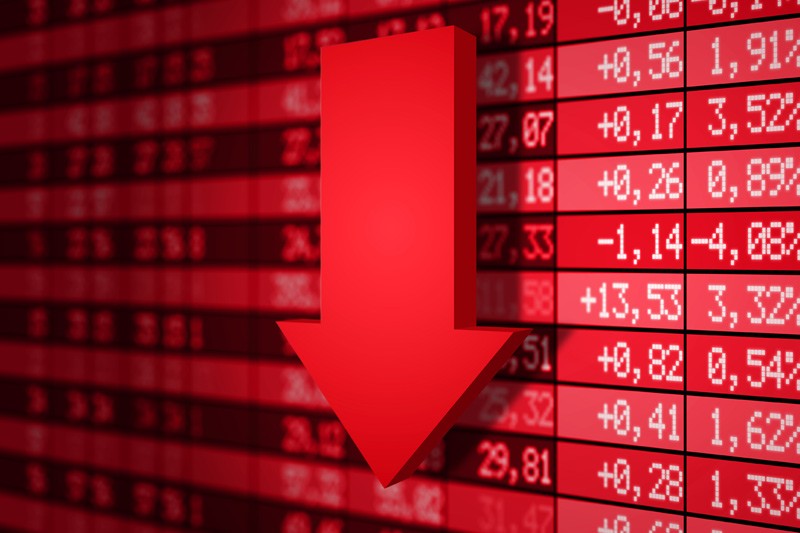Consumer Confidence Report Articles News Information
Post on: 16 Март, 2015 No Comment

By Sasha Cekerevac for Investment Contrarians | Dec 6, 2013
There’s one point that I cannot stress enough in this column, and longtime readers are sure to know it: consumer confidence is extremely important for economic growth here in America.
It’s simple logic. Because so much of our economy is built on domestic spending, without an increase in consumer confidence, consumer spending will languish and we won’t have higher levels of economic growth.
Recently, new information from the Conference Board was quite disappointing. The Consumer Confidence Index dropped to a seven-month low in November to 70.4, following a decline in October as well. (Source: “Consumer Confidence Declines Again in November,” The Conference Board web site, November 26, 2013.)
Over the short term, consumer confidence declined due to people stating their concerns regarding a weakening of economic conditions. What’s more concerning is that the expectations for the next six months worsened, as people stated they were increasingly worried about their job prospects and earnings, which isn’t a surprise considering the data hasn’t been all that positive lately, especially when it comes to wage growth.
If consumer confidence is turning pessimistic over the stability of jobs or paychecks, how can we really expect the average American to increase their spending or businesses to feel more confident in expanding?
This type of uncertainty leads to slower economic growth. If you are unsure of your financial health over the next few months, chances are you won’t increase your spending, and a lower level of consumer confidence leads to muted economic growth.
Clearly, one market sector I am worried about is that of companies catering to the average American.
Chart courtesy of www.StockCharts.com
Target Corporation Read More
Black Friday was an afterthought, to me at least. Yes, I bought a few items from the MLB store, but that’s it. But according to newly released data for this key shopping day, it appears as though I wasn’t alone.
A few weeks ago, we saw many of the key retailers reporting some results and warning that sales in the retail sector could be sluggish during the holiday shopping season. Bellwether Wal-Mart Stores, Inc. (NYSE/WMT) was nervous about sales and said the climate in the retail sector could be tough. We heard similar stories from the likes of Macy’s, Inc. (NYSE/M), Nordstrom, Inc. (NYSE/JWN), and Target Corporation (NYSE/TGT), so we knew the retail sector was in for some difficult times.
Well, it appears the retailers may have been right in their assessments, as results from Black Friday point to some disappointing sales with a retail sector in search of consumers and margins. The problem is consumers are looking for deals and discounts; they’re not opening up their wallets in a mad dash to the register.
So despite earlier store openings, extended store hours, and heavy advertising leading up to Black Friday, the big day that many retailers depend on, the early estimates show Thanksgiving weekend retail sales declined 2.7% year-over-year to $57.4 billion, based on a report by the National Retail Federation (NRF). Even so, the NRF still estimates retail sales will edge up 3.9% during the holiday shopping season.
I can’t say I’m surprised. The reality is consumer confidence remains shaky, and with the jobs market being as soft as it is, consumers are clearly reluctant to spend. The Read More
By Sasha Cekerevac for Investment Contrarians | Oct 22, 2013
As most of you know, the consumer represents the largest part of our economy. The key to getting our economic recovery moving forward is to ensure that consumer confidence continues rising. The only problem: consumer confidence isn’t rising—in fact, it’s dropping sharply.
One of the few reports available on recent consumer confidence (due to the government shutdown) is the Bloomberg Consumer Comfort Index, which showed a significant drop from -9 in September to -31 in October. This latest reading is now the lowest level of consumer confidence since November of 2011. (Source: “Consumers’ Outlook for U.S. Economy Plunges to Two-Year Low,” Bloomberg, October 17, 2013.)
Now, I know what you’re thinking: consumer confidence naturally took a hit when all of the shenanigans in Washington began, culminating in the U.S. government shutdown.
That is true. A big part of the drop in consumer confidence was directly due to the ridiculous position that Washington imposed on all of us. And I’m sure when we begin to see the economic releases flowing out of government agencies again, the news will be that the economic recovery has stalled due to the impact of the shutdown.
However, there are two points that still bother me.
The first is that prior to the government shutdown, the level of consumer confidence, at least from the Bloomberg Consumer Comfort Index, was still very low. It’s not as if consumer confidence and the economic recovery were barreling full steam ahead, and then all of a sudden the government shutdown let down the anchor.
The truth is that both the economic recovery and consumer confidence were far below optimal levels Read More
The housing market continues to produce some healthy gains for investors. Home builders edged higher on Tuesday after the S&P/Case-Shiller 20-City Home Price Index surged another 12.4% in July, above the Briefing.com estimate of 10% and the 12.1% advance in June.
As shown on the chart below, the index has been on a steady upward climb since February 2012, and there appears to be nothing stopping the move in the housing market.
Of course, the accommodative monetary policy adopted by the Federal Reserve has been the primary reason for the advance in home builds, sales, and selling prices—the “evidence” behind the so-called housing market “recovery.”
But be careful.

It’s true that the financing costs for homes could likely stay historically low for a few more years, which would help add support to the housing market. However, I feel there could be a sort of bubble on the horizon.
Chart courtesy of www.StockCharts.com
Let me explain.
The upward move in the housing market has largely been driven by foreclosures, short sales, and very affordable mortgage rates.
The problem now is that financing rates are not going to stay at these low levels indefinitely. Interest rates are heading up, folks, and it’s not a matter of if, but when.
If you believe the Federal Reserve, interest rates will likely begin to turn higher sometime in late 2014, depending on if the unemployment rate can improve to 6.5%. There is no guarantee the jobs market will improve by next year and drive the jobless rate down. In fact, the jobs market may not improve, and we may have to wait until early 2015 Read More
By Sasha Cekerevac for Investment Contrarians | Sep 18, 2013
As my long-time readers are fully aware, one of the concerns I have brought up over this past year has been the reaction in the economy to what I believed would occur—higher interest rates.
As we are now seeing interest rates increase, the result of this action is beginning to seep through into the economy.
One of the pillars of economic growth at any level is consumer confidence. Consumer confidence drives our economy, especially since consumer spending accounts for approximately three-quarters of the total gross domestic product (GDP). While some readers might have disagreed with my forecast earlier in the year, there is no argument at this point—interest rates are rising.
The real question is: what happens to consumer confidence going forward? Answer that, and you will answer the next logical question: what happens to economic growth?
New data are beginning to come out that show consumer confidence is beginning to weaken. According to the Thomson Reuters/University of Michigan’s preliminary U.S. consumer sentiment data results, it appears that consumer sentiment in September will drop to a five-month low.
Consumer sentiment data for September is at 76.8, down substantially from the 82.0 that analysts had expected. In the report, it clearly states that Americans are increasingly concerned about higher interest rates and how they will affect them. (Source: “U.S. Consumer Sentiment Sinks in September on Interest-Rate Fears,” Reuters, September 13, 2013.) And this is what has been my exact fear over the past six months—that economic growth could be curtailed by a drop in consumer confidence as interest rates rise.
Much of the economic growth we’ve seen over the past couple Read More














